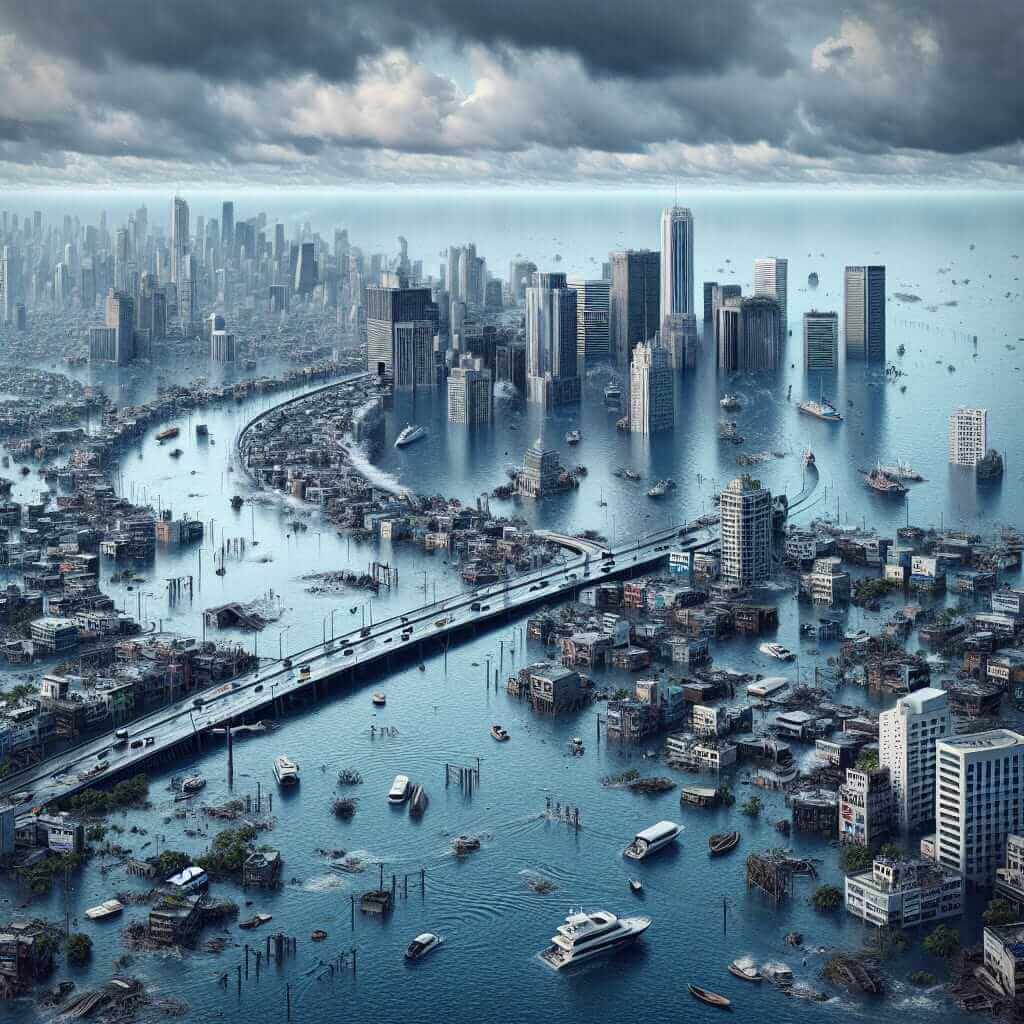The Reading section of the IELTS exam tests a candidate’s ability to understand and interpret texts of varying lengths and complexities. One common topic in recent exams is the impact of climate change on various sectors, including global transportation networks. Given the current global attention on climate change, it’s reasonable to predict that this subject will continue to appear in future exams.
Reading Passage: Climate Change and Global Transportation Networks
Passage
The interconnectivity of global transportation networks facilitates the movement of goods and people across the planet. However, climate change poses significant risks to these networks. Extreme weather events such as hurricanes, floods, and heatwaves are increasing in both frequency and intensity, leading to disruptions in transport services.
In coastal regions, rising sea levels threaten to inundate important infrastructure such as ports, railroads, and airports, which are often located near water bodies. In addition, permafrost thaw in polar and subpolar regions is destabilizing the ground on which many transportation networks are built, weakening roadways and rail lines.

The aviation industry is also feeling the impacts of climate change. Higher temperatures can reduce the lift of aircraft, necessitating weight restrictions and thus disrupting schedules. Moreover, increased turbulence associated with climate changes affects passenger comfort and safety.
Another critical consideration is the economic impact. Damage to infrastructure and increased maintenance costs are redirecting funds that could otherwise be used to expand and improve these networks. For instance, some regions might require periodic elevation of roadways to combat flooding, which involves significant investment.
Finally, climate change’s impact on global transportation extends to the supply chain. Disruptions to transportation can delay the delivery of goods, leading to shortages and increased prices. This ripple effect underscores the importance of building resilient transportation networks that can withstand climate impacts.
Questions
Multiple Choice
-
According to the passage, what is one effect of climate change on coastal transportation infrastructure?
a. Increased availability of transport services
b. Inundation of infrastructure due to rising sea levels
c. Decreased demand for transportation services
d. Enhanced stability of transportation routes -
What challenge faced by the aviation industry is mentioned in the passage?
a. Increased flight duration
b. Higher fuel costs
c. Reduced lift and weight restrictions
d. Shorter runways
Identifying Information (True/False/Not Given)
- Climate change has caused an overall decrease in extreme weather events.
- Permafrost thaw impacts polar regions exclusively.
- Climate change has led to reduced maintenance costs for transportation networks.
- Increased turbulence in aviation is linked to climate change.
Sentence Completion
- Thawing permafrost in polar regions affects ____.
- Rising sea levels primarily endanger ____.
Answer Key
Multiple Choice
- b. Inundation of infrastructure due to rising sea levels
- c. Reduced lift and weight restrictions
Identifying Information (True/False/Not Given)
- False
- False
- False
- True
Sentence Completion
- roadways and rail lines
- ports, railroads, and airports
Common Mistakes and Tips
- Misinterpreting the question: Ensure you read both the question and the passage thoroughly before choosing an answer.
- Skimming too quickly: While skimming is a useful technique, it can lead to missing critical details. Balance speed with comprehension.
- Ignoring context clues: Pay attention to surrounding information that can help clarify the specific detail being questioned.
Vocabulary
- Inundate (verb): [ˈɪn.ʌn.deɪt] – to flood.
- Permafrost (noun): [ˈpɜː.mə.frɒst] – permanently frozen ground.
- Turbulence (noun): [ˈtɜː.bjə.ləns] – irregular and violent movement of air affecting aircraft.
- Resilient (adjective): [rɪˈzɪl.i.ənt] – able to withstand or recover quickly from difficult conditions.
Grammar Focus
Relative clauses
- Example: “The interconnectivity of global transportation networks, which facilitates the movement of goods and people across the planet, is under threat due to climate change.”
- Form: Relative pronoun (who, whom, whose, that, which) + subject + verb
- Use: To add non-essential but related information to the main clause.
Conclusion
To excel in the IELTS Reading section, practice with diverse topics, develop a keen eye for detail, and build a strong vocabulary. Understanding the implications of global issues like climate change on transportation can aid not only in your IELTS preparation but also in your general awareness of current affairs. Good luck in your studies!